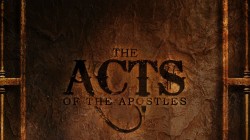January 11, 2014
Evangelism Practiced: Biblical Models of Evangelism
Mark Batory
In the New Testament, much of the evangelism was done through everyday living, “evangel-living.” This means that every true believer in Jesus Christ bringing the gospel to his or her world through the natural web of relationships that God has supernaturally arranged individually for them. A believer that not only lives a life that reflects the […]
Page 86 of 100



